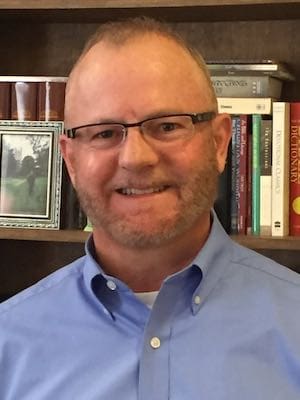One of the final plays in Super Bowl XLIX will be discussed for a long time – the decision in the Seattle Seahawk’s huddle to pass rather than run the football on the 1-yard line.
That decision resulted in a game-ending interception and loss and offered an important lesson to be learned: While huddling is extremely important, execution is even more critical.
When we gather as the church, we are huddling together to worship God, so to speak, to study the Bible, to fellowship and to pray, in order to better carry out our calling and mission – much in the way a football team huddles together to receive instructions for the next play.
There is a great need for the “holy huddle.” This is where we draw strength and sustenance. This is where we find love and support.
We come to our sacred spaces to find direction, to receive a word from God by remaining silent long enough to hear and receive it.
We cannot experience this kind of New Testament community alone at the beach or sleeping in on Sunday mornings. We need to huddle together to seek the holiness of God.
But that’s not all there is. God doesn’t call us to stay in this holy huddle. After we’ve come together, we must then break from the huddle and go into the world to execute God’s mission.
I read recently an article by Dan Gorenstein highlighting yet another institution in our culture – besides churches – facing this challenge.
New data from the National Endowment for the Arts (NEA) shows attendance for operas, plays, dance and art museums continues to fall.
Only 33 percent of American adults report attending at least one of those events in the past year. And the people showing up are getting older – and grayer.
Through a series of reports, the NEA is seeking to give the industry more insight into what consumers want, as more institutions are realizing if they want to keep the lights on they must change the model.
For example, if you run a symphony, the business model used to be: play gorgeous, amazing music and your audience will come. That strategy doesn’t play anymore, Brent Reidy, a consultant in New York City, said.
“The reality is that decades ago and centuries ago, art was something that was closer to more people, and we need to get back to a place where society understands our value and really embraces us,” he said.
With nearly a third of organizations in the red, according to a 2013 survey, some art institutions are taking a closer look at their customers.
As many as 31 million Americans say several factors, including time, kept them away from the opera or a museum.
In response, art institutions are getting out of the galleries and concert halls and taking art to the people. Gorenstein shared three examples:
â— At a subway stop in Chicago, the Chicago Opera Theater holds pop-up performances.
â— In Detroit, weatherproof reproductions of masterworks are placed in neighborhoods that would otherwise never encounter these works.
â— The Philadelphia Orchestra hosts “PlayIN” events at one of the city’s premier venues, where the talented and the beginners all come together to play with the orchestra’s world-class musicians.
The goal of each of these efforts is to win the hearts and minds of people – especially young people.
Professional musician Stanford Thompson has stated that artists must redefine their roles.
He believes that what will drive traffic to these institutions is when actors, singers and musicians start stepping off the stage and into struggling schools, to mentor students and teach them to find value in art.
Do you hear the common challenge in our ever-changing culture?
Churches of all sizes – in every context imaginable – are facing the same issue of getting out of our buildings and into our communities and being the church in the world.
It will take courage and innovation. It will also require a deep, mature faith. There are no quick fixes.
We must continually and faithfully huddle together for fellowship and prayer, for worship and guidance in our sacred spaces.
But then, we must break from our holy huddles and creatively execute the will of God in the real world by loving our neighbors, baptizing and teaching, making disciples of all the nations and engaging our communities in meaningful ways.
And as we go, Jesus himself has promised to be with us – even to the end of the age (Matthew 28:19-20).
 Dennis Atwood is the pastor of First Baptist Church in Mount Olive, North Carolina. A version of this column first appeared on his blog and is used with permission.
Dennis Atwood is the pastor of First Baptist Church in Mount Olive, North Carolina. A version of this column first appeared on his blog and is used with permission.

